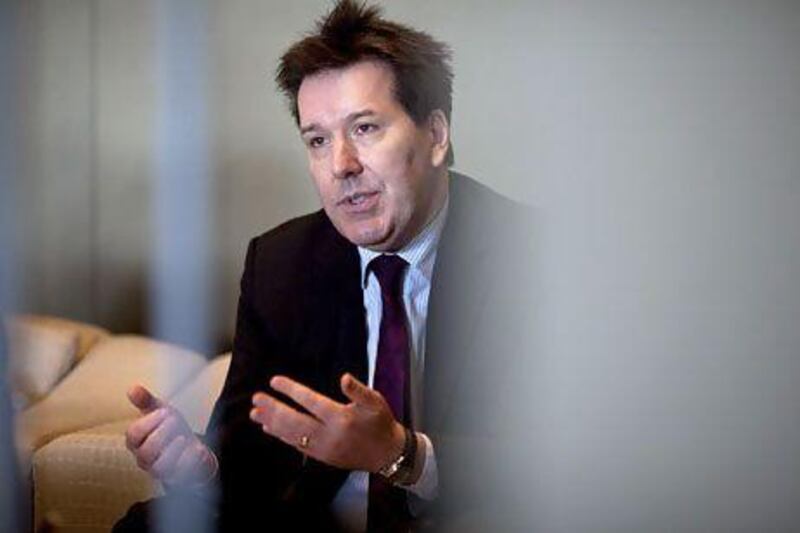Companies in the UAE say they are facing obstacles to trading in the Chinese currency despite a major push by some of the biggest banks to encourage greater use of the yuan. The Middle East operations of Shantui Construction Machinery, the largest bulldozer manufacturer in the world, is struggling to encourage customers in the region to pay for goods in yuan, even with the offer of a 5 per cent discount for using the currency.
Regional importers have been hesitant to pay for goods in the Chinese currency, preferring to settle payment using the US dollar to which some of their own currencies are pegged.
Li Yuandong, the financial manager of Shantui's Dubai-based Middle East operations, blames the greater dominance of the US dollar in the Middle East's financial system compared to other regions.
"For South East Asia and African companies they have renminbi [the yuan's other name] from the Chinese government but here Chinese trade is not so much that they have to use the Chinese renminbi," he said.
The company has yet to use the yuan-denominated account it set up in the UAE to facilitate the payment of goods in the currency, he said. Instead, the company had to take a hit of up to 10 per cent by converting dollar payments into yuan through possible depreciation of the green back and fees incurred converting it.
The challenge facing Shantui is a reflection of the small portion of trade between the UAE and China conducted in the currency. The flow of goods between the two countries has swelled 16-fold in the past 10 years from US$2.5 billion (Dh9.18bn) in 2002 to $40.42bn last year but the vast majority of the deals are still done in dollars.
Trade between the UAE and China conducted in the yuan rose 79 per cent last year to 340 million yuan (Dh201.2m), said Zheng Yang, the deputy director general of the People's Bank of China Shanghai head office.
In an effort to overturn the trend, international banks including HSBC and Standard Chartered and local lenders such as Emirates NBD and Mashreq are offering more services aimed at persuading companies doing business with China to start using the currency to gain potential discounts from Chinese sellers. It comes as the Chinese currency is forecast by HSBC to become the third most traded currency by 2015 behind the dollar and euro.
"The currency is beginning to catch up with what's been an epic transformation in China over the past 30 years," said Stephen King, the group chief global economist and global head of economics and asset allocation research at HSBC, in an event on the topic organised by the bank in Dubai yesterday.
China's banks raise lending, b8
But UAE firms importing goods from China say they too are facing difficulties paying for goods in the currency.
Iteco, which supplies technical parts for oilfields, is unable to pay for goods in the currency despite sourcing up to 30 per cent of its products from China, said Nils Johnannsen, a director of the Dubai-based company.
"Our Chinese suppliers have to buy in dollars so the benefit in selling to a company here in the UAE in renminbi diminishes," said Mr Johnannsen. "The other thing there is there are tax benefits for Chinese manufacturers from the Chinese government if they export goods. In US dollars they always get their tax refund but it seems they're a bit hesitant to proceed in renminbi as they're not sure of receiving the same benefits."
Since 2009 China has embarked on a gradual drive to raise the international profile of the yuan in line with the rapid growth of its economy. The strategy started by granting powers to Hong Kong to become the first location outside of mainland China for clearing yuan. The process has continued this year with Taiwan and Singapore both joining Hong Kong as offshore trading centres with direct clearing in renminbi.
China has also signed currency swap deals with 19 countries around the world, including the UAE, totalling 1.8 trillion yuan (Dh1.07tn).
Mr Yang said there was potential for a further strengthening of commercial ties.
"We can see that our two sides have complemented each other well in the past and still have great potential in the future," he said.





